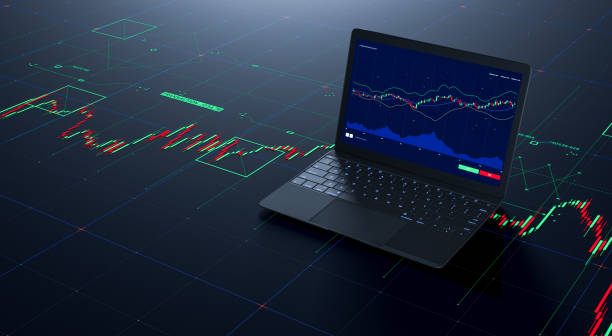Let’s See Who’s a Day Trader?
A Day Dealer Is an Existent Who Opens and Closes All of His or Her Trades Before the End of The Trading Day; No Open Positions Are Maintained Overnight. Day Dealers Aim to Use Intraday Request Price Action by Executing Multiple Long and Short Trades, Looking to Subsidize Temporary Force and Demand Inefficiencies in Request Pricing. Still, And Those Trades Regard for Further Than 6 Of His or Her Trading Exertion, The Existent Is Considered A “Pattern Day Dealer If an Individual Opens and Closes Trades Four Times in Five Days.” Once Dealers Are Linked as Pattern Day Dealers, They Must Maintain a Minimum Balance Of$,000 In Equity in Their Account to Continue Day Trading. Numerous Dealers Don’t Like Such a Restriction and Work Around It by Trading with Further Than One Brokerage Establishment. In Simple Terms, Day Trading Involves Buying and Selling Stocks Within a Trading Day. It’s “Buy Low, Vend High” On Energy Drinks and With a Deadline. Day Dealers Concentrate on Liquid Investments That Change Snappily. Deals Are Made in Volume and Also Ended as The Price Hopefully Increases Throughout the Day. Day Trading Is About Timing the Request, And That Requires Experience, Knowledge, A Lot of Luck, And the Understanding That It Still May Not Work Out. Capital Varsity’s Best Course Provider Will Help You Out in Making a Career in Trading. Day Dealers Need Jitters of The Sword. Day Trading Is a High-Threat Strategy and Bone That’s Not Suited to The Utmost Investors. While Your Investments Could Increase in Value, They Could Also Drop Significantly.

Crucial Points
• Day Dealers Are Individuals Who Execute and Complete All of Their Trades Before the Close of The Trading Day.
• The Thing of Day Trading Is to Subsidize on Force and Demand Inefficiencies, Which Induce Intraday Request Price Action.
• There Are a Variety of Trading Strategies A Day Dealer May Employ, Including Scalping, News-Grounded Trading, And High- Frequency Trading.
• Numerous Day Dealers Employ Specialized Analysis to Induce Signals of Favorable Trading Chances.
Day Trading Strategies
Scalping
The Scalping Strategy Involves the Day Dealer Looking to Make a Profit from Small Price Changes – Trades Are Executed Snappily, Frequently Being Opened and Closed Within Just Many Twinkles, Occasionally Indeed Seconds. For The Strategy to Be Effective, A Day Dealer Must Have a Precise Entry and Exit Strategy and Must Be Careful to Execute Trades with Perfection Because When Looking to Just Make A Small Profit, Every Penny Of The Shot And Ask Spread – Both Entering A Trade And Latterly Exiting It – Counts. Scalpers Should Act Snappily Before a Window of Occasion Closes. Example Grounded on A Specialized Map Pattern, The Dealer Believes That Stock A, Priced at At$14.50, Is Due For At Least A Small Rally. He Buys the Stock and Also Sells It When the Price Reaches$ 15 Just A Couple of Twinkles Latterly, For A 50- Cent Per Share Profit.
News Based Trading
The News-Grounded Trading Strategy Involves the Use of Accurate, Timely Information from Colorful News Sources Regarding Events That Are Likely to Affect the Price Movement Of Means; Events Like Accessions Or Earnings Adverts Beget Increased Volatility the Day Dealer Can Profit From. Example Several Dependable News Sources Report That Company a Is About to Advertise Its Intention to Acquire Company B. The Dealer Buys Stock in Company B. When The Advertisement Comes, Company B’s Stock Price Rises Sprucely. The Dealer Cashes Out for A Quick Profit.

High-Frequency Trading
As The Name Suggests, The High- Frequency- Trading Strategy Involves the Prosecution of a Large Number Of Orders Transacted Snappily Through The Use Of An Automated Trading Platform The Platforms Use Algorithms That Can Snappily Dissect Request Trends And Shifts And Shoot Out Baskets Of Stock Orders With A Shot- Ask Spreads That Profit The Dealer. High-Frequency Dealers Are Frequently Arbitrage Dealers Looking to Benefit from Small Price Disagreements in The Same Asset as Traded on Different Exchanges.

